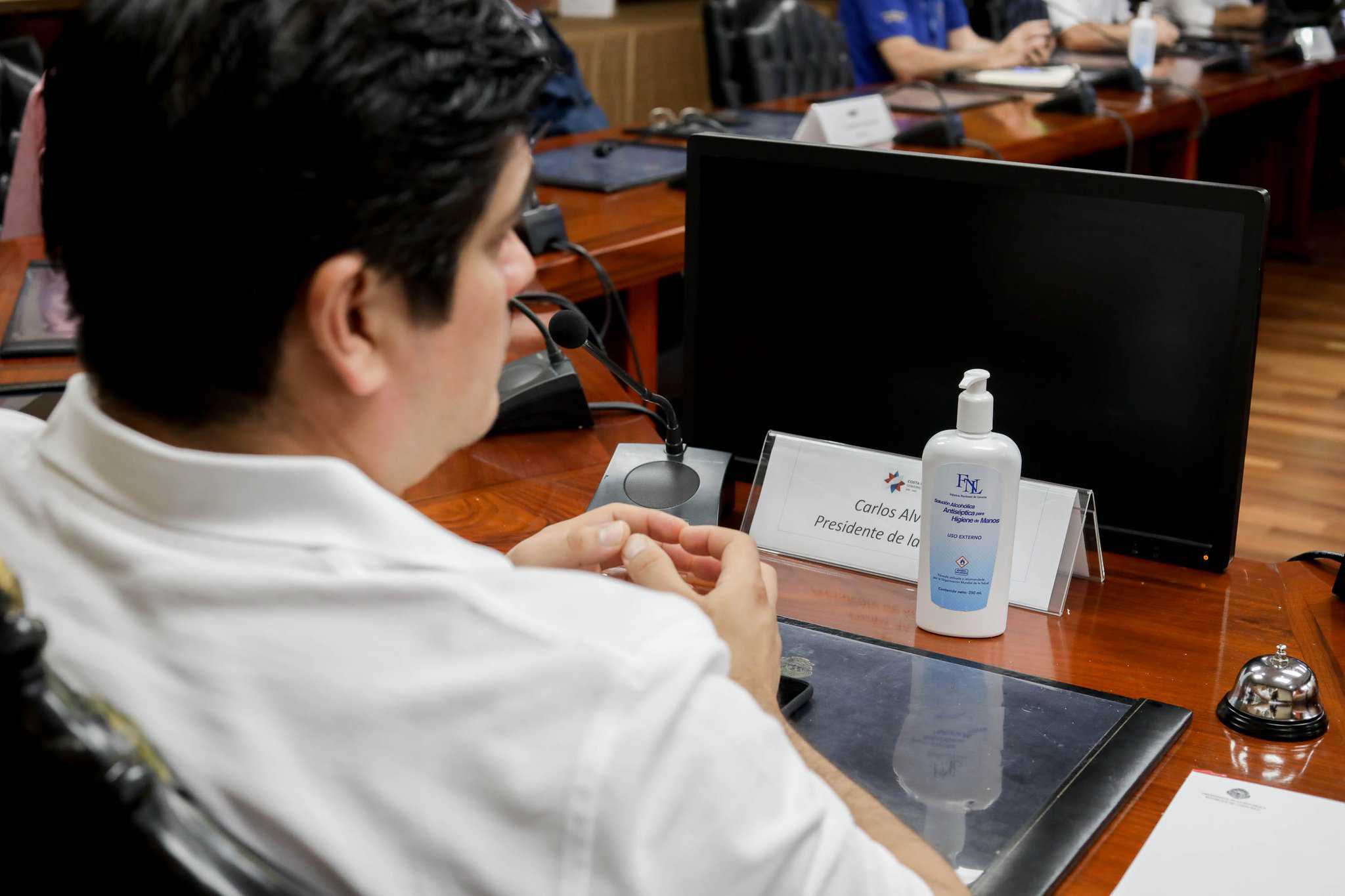Costa Rica on Friday opened a dialogue with many sectors of the country in search of an agreement to overcome the serious fiscal crisis it faces.
Representatives from more than 60 sectors — of the 70 who were invited — gathered in a room at the National Stadium, wearing masks and distancing themselves, to initiate discussions.
President Carlos Alvarado indicated that on the first day of talks, the methodology of the dialogue for the next few days will be defined, which will have as mediators the political scientist Ilka Treminia and the economist Víctor Umaña.
The two mediators indicated at the end of the day that the parties took the proposed methodology to their bases to decide how to work in the next session, scheduled for October 28.
“People are very concerned about the fiscal situation, about unemployment, and that is why there is an agreement in the need to be flexible, to contribute and that only together we are going to get out of this,” Umaña told reporters.
The goal is to conclude the discussions on November 20, to submit proposals to the government and have them send law projects to the Legislative Assembly as bills as of December 1.
Farmers, educators, students, mayors, businesspeople, academics, cooperatives, churches and women’s organizations, among other sectors, participate in the dialogue.
Costa Rica has a large fiscal deficit that reached 6% of GDP in 2019, and the government projects it at 9.3% for this year, given the impact of the Covid-19 pandemic.
The meeting will seek a consensus on actions to balance public finances and face growing poverty and unemployment.
“We don’t have time to lose; we have to solve it as soon as possible and we have to agree as a society,” Alvarado declared when opening the day of dialogue.
The government bet on national dialogue after a proposed agreement with the International Monetary Fund (IMF) was widely rejected for emphasizing temporary taxes over austerity to face the fiscal crisis.
A movement calling itself “National Rescue” launched a wave of roadblocks that lasted for two weeks and in some cases sparked violent clashes with the police, in rejection of the proposed agreement with the IMF.
The Minister of Labor, Geannina Dinarte, highlighted that on the first day of the dialogue, the interest of the sectors in reaching agreements was evident.
“There is a huge challenge not only from the perspective of public finances, but also unemployment and economic growth,” the minister said.






